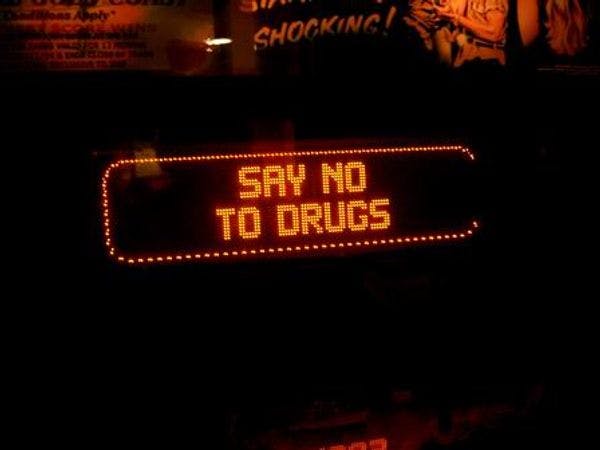Flickr, Noranna (CC BY-NC-ND 2.0)
Repenser les politiques des drogues : Pourquoi « juste dire non aux drogues » ne marche pas?
La prévention basée sur des preuves n'a rien à voir avec les programmes basés sur la peur souvent mis en place dans les écoles. Pour en savoir plus, en anglais, veuillez lire les informations ci-dessous.
By Samantha Chong / Malay Mail
FEBRUARY 13 — I attended an Anti-drug campaign during high school.
“Don’t ever do drugs or your life will be ruined!” we were reminded again and again.
There was big screen in the hall. You could hear a pin drop when they first played the video. It was about a man who was flogged 24 times for committing a crime.
For many of us, it was the first time we saw a naked buttocks of a grownup man. Pieces of flesh were ripped from his body. Definitely not for the faint-hearted.
But did the scare tactic work?
When the video ended, some of my schoolmates were traumatised. But some found it amusing, they cheered and clapped their hands.
Despite the intended effect, our school wasn’t drug free that year.
Drug prevention programme and sudden urine test in school
The National Anti-Drug Agency (AADK) often brings different types of drugs to exhibit it in school. The purpose? To show students how harmful drugs could be.
Last year, the Director General of AADK told Harian Metro that two million students were at risk of drug use. Urine testing was done in school as an early step to stop students from using drugs.
I am not saying we should turn a blind eye to children who use drugs. But the main reasons why kids use drugs are curiosity, broken family, trauma from abuse, mental illness, stress, boredom, and peer pressure. Will sudden drug test and harsh punitive action prevent all these?
True story on random urine testing
“When I was in Form 4, nine of my friends smoked “rokok daun” in the school bus. The next day, AADK did urine test in school. All of them were found positive for Tetrahydrocannabinol (THC) and jailed for weeks. After their release, the head master caned all of them publicly. Some boys were suspended, some expelled. Majority ended up living a problematic life. But the one that did not attend school that fateful day was able to escape and is now a doctor.”
This story reminds me of Barack Obama and Bill Clinton who had admitted drug use in their younger days. Would they have been US Presidents if they had been caught?
The Dangerous Drugs Act which criminalises drug use, was enacted in 1952 when addiction was considered as a security threat and not a medical condition. The law does not differentiate people who use drug experimentally, recreationally, self-medication or chronic use. Instead, it only provides a one size fit it all solutions. The punishment is either a fine, jail sentence or both. In any case, the criminal records will be a hurdle for pursuing higher education and deter future proper employment.
